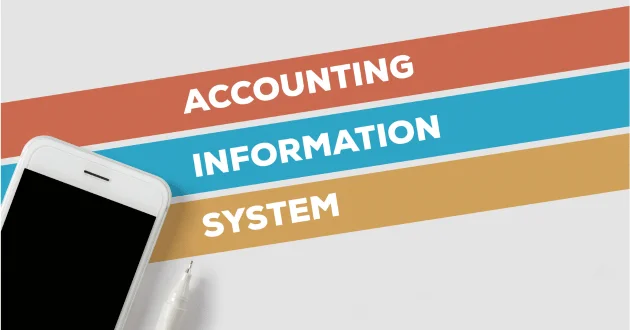In today’s digital age, information systems play a crucial role in the field of accounting. Accounting Information Systems (AIS) have revolutionized the way businesses manage their financial data and make strategic decisions. In this blog post, we will delve into the world of AIS, exploring what it is, how it works, its components, benefits, and challenges. By the end of this post, you will have a comprehensive understanding of the importance of Accounting Information Systems in modern business operations.

- Introduction to Accounting Information Systems
- Components of Accounting Information Systems
- Benefits of Accounting Information Systems
- Challenges of Implementing Accounting Information Systems
- Role of Accounting Information Systems in Decision-Making
- Future Trends in Accounting Information Systems
- Conclusion
- Frequently Asked Questions
Introduction to Accounting Information Systems
Accounting Information Systems (AIS) are a combination of software, hardware, databases, and procedures used by accountants to collect, store, process, analyze, and report financial data. The primary goal of an AIS is to provide accurate and timely financial information to internal and external stakeholders to support decision-making processes.
AIS not only streamline accounting processes but also enhance the overall efficiency and effectiveness of an organization’s financial management. By integrating technology with accounting principles, AIS has become an indispensable tool for modern businesses looking to maintain financial transparency and compliance.
Components of Accounting Information Systems
Data Input: The first component of an AIS is data input, where financial transactions are recorded and entered into the system. This can be done manually or automatically through interfaces with other systems such as point of sale terminals or online payment gateways.
Data Processing: Once the data is inputted into the system, it undergoes processing to organize, categorize, and summarize the information. This step involves various calculations, reconciliations, and validations to ensure the accuracy and integrity of the financial data.
Data Storage: Data storage is a critical component of AIS, where all financial information is stored in a centralized database. This allows for easy access, retrieval, and analysis of financial data whenever needed.
Information Output: The final component of AIS is information output, where financial reports, statements, and analysis are generated based on the processed data. These outputs provide valuable insights into the financial health of the organization and help stakeholders make informed decisions.
Benefits of Accounting Information Systems
Improved Accuracy: One of the key benefits of AIS is its ability to minimize human errors in financial data processing. By automating repetitive tasks and calculations, AIS ensures that financial information is accurate and reliable.
Enhanced Efficiency: AIS streamlines accounting processes by automating tasks such as data entry, reconciliation, and reporting. This not only saves time but also allows accounting professionals to focus on more strategic activities.
Better Decision-Making: With real-time access to financial data and customized reporting capabilities, AIS empowers decision-makers to make informed choices based on accurate and up-to-date information.
Increased Financial Transparency: AIS promotes transparency by maintaining a detailed audit trail of financial transactions. This not only helps in compliance with regulatory requirements but also builds trust with stakeholders.
Cost Savings: By reducing manual intervention and optimizing workflow processes, AIS helps organizations save costs associated with paper-based systems and human errors.
Challenges of Implementing Accounting Information Systems
Initial Costs: The implementation of an AIS requires significant upfront investment in software, hardware, training, and infrastructure. Small businesses may find it challenging to allocate resources for this purpose.
Integration Issues: Integrating AIS with existing systems and processes can be complex and time-consuming. Compatibility issues and data migration challenges may arise during the implementation phase.
Security Concerns: Protecting sensitive financial data from cyber threats and unauthorized access is a major concern for organizations implementing AIS. Robust cybersecurity measures are essential to safeguard the integrity of the system.
Staff Training: Training employees to use the new AIS effectively is crucial for its successful implementation. Resistance to change and lack of technical expertise among staff members can hinder the adoption of the system.
Maintenance and Upgrades: Regular maintenance, updates, and upgrades are necessary to ensure the optimal performance of AIS. Organizations must allocate resources for ongoing support and enhancements to keep the system up-to-date.
Role of Accounting Information Systems in Decision-Making
AIS plays a vital role in decision-making processes by providing timely and accurate financial information to support strategic choices. Here are some ways AIS influences decision-making:
- Budgeting and Forecasting: AIS helps in creating budgets, forecasts, and financial projections based on historical data and market trends.
- Performance Analysis: AIS generates reports on key performance indicators (KPIs) that enable managers to evaluate the financial health of the organization.
- Risk Management: By providing insights into financial risks and vulnerabilities, AIS assists in identifying potential threats and implementing risk mitigation strategies.
- Compliance Monitoring: AIS ensures compliance with regulatory requirements by generating audit trails, financial statements, and reports that meet legal standards.
Future Trends in Accounting Information Systems
As technology continues to evolve, so do Accounting Information Systems. Some emerging trends shaping the future of AIS include:
- Cloud-Based Solutions: The adoption of cloud computing for AIS offers scalability, flexibility, and cost-effectiveness for organizations of all sizes.
- Big Data Analytics: AIS leveraging big data analytics can provide deeper insights into financial trends, patterns, and anomalies for better decision-making.
- Blockchain Technology: The use of blockchain in AIS enhances security, transparency, and traceability of financial transactions.
- Artificial Intelligence (AI) and Machine Learning: AI-powered AIS can automate repetitive tasks, predict financial outcomes, and improve data accuracy.
- Mobile Applications: Mobile-friendly AIS solutions enable real-time access to financial information anytime, anywhere, enhancing collaboration and efficiency.
Conclusion
Accounting Information Systems have become indispensable tools for organizations seeking to streamline their financial operations, enhance decision-making processes, and ensure compliance with regulatory requirements. By leveraging technology to automate tasks, improve accuracy, and provide real-time insights, AIS empowers businesses to stay competitive in today’s dynamic marketplace. Whether you are a small business owner or a finance professional, understanding the importance of Accounting Information Systems is crucial for driving organizational success and growth. Embracing AIS not only improves operational efficiency but also lays a strong foundation for sustainable business practices in the digital age.
Read more: What is Accounting?


